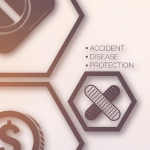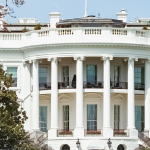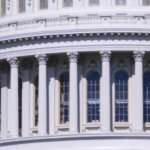AAA 2022 Legislative Priorities
Yesterday, the American Ambulance Association Board of Directors approved the Association’s advocacy priorities for 2022. Our key initiatives reflect the challenges we face this year, including short-sighted threats to EMS balance billing, a worsening workforce shortage, the expiration of the temporary Medicare increases, and potential sequestration cuts.
We also continue to fight for you as you care for people first on the frontlines of the COVID-19 pandemic. We will sustain our efforts at securing additional funding for ground ambulance services to help address the increased costs of providing medical care and transport during the Public Health Emergency.
To achieve our collective goals, the AAA Board will need to mobilize the full voice of influence of the EMS community this year. If you have not already sent an email using the AAA advocacy system to your members of Congress, please do so today!
Staff will be reaching out to you at key points later in the year about letter writing for specific individual policy requests. But it is important that they hear from you now on all the top issues for ground ambulance services. They are:
Top AAA Advocacy Priorities for 2022
EMS Workforce Shortage
With the persistent shortage of ground ambulance service field personnel raising to a crisis level with the COVID-19 pandemic, the AAA moved the issue to a top policy priority. The AAA is currently working with key Congressional Committees of jurisdiction to hold hearings on the EMS workforce shortage. We are also developing legislation to specifically target increasing access for ground ambulance service organizations to federal programs and funding for the retention and training of health care personnel.
Balance Billing
The AAA successfully educated the Congress on the role of local government oversight and other unique characteristics of providing ground ambulance service organizations. As a result, the Congress directed the establishment of a Ground Ambulance and Balance Billing Advisory Committee to address the issue. The Committee is in the process of being formed and then has 180 days in which to make recommendations to the Congress. The AAA will be involved with the Committee and advocating that the Congress implement policies that meet the needs of our members.
Additional COVID-19 Financial Assistance
The AAA is advocating for additional financial assistance for ground ambulance service organizations to help address the increased costs of labor and other higher costs associated with providing health care during the COVID-19 pandemic.
Medicare Ambulance Relief
The temporary Medicare ambulance increases of 2% urban, 3% rural and the super rural bonus payment expire at the end of the year. The AAA will continue to push for passage of the provisions of the Preserving Access to Ground Ambulance Medical Services Act (S. 2037, H.R. 2454) before the provisions expire as well as for the adoption of language to ensure truly rural areas remain rural following changes to geographical designations based on the 2020 census.
Sequestration Cuts
The Congress delayed the additional 4% sequestration cut for only one yea. The AAA is working with other EMS and health care provider and supplier groups to permanently prevent the cut from going into effect as well as further extending the moratorium on the long-standing 2% cut.
Ambulance Cost Data Collection
With the 2-year delay of ambulance data collection due to the pandemic, the Medicare Payment Advisory Committee (MedPAC) will have little to no data to analyze in March 2023 in which to make recommendations to the Congress on Medicare ambulance payment policy and rates. The AAA is asking the Congress to push back the date of the MedPAC report and also expand the modified data collection timeline of two years to the intended four years.
On behalf of my fellow board members, I again thank you for your continued membership and participation. We look forward to serving you for many years to come.
Should you have any questions regarding our advocacy priorities, please contact AAA Senior Vice President of Government Affairs Tristan North at tnorth@ambulance.org.





